In the center of Hermosillo, a manufacturing-dominant city of nearly 700,000 in Mexico’s northwestern Sonora state, the printers at Etiquetas e Impresiones de Mexico are churning out white labels, sheets, and packaging for big-name retailers. 350 miles to the north, in Phoenix, the same company—under the name Labor and Printing Solutions—will soon open a facility near the Phoenix airport, making a $2.2 million investment in the Arizona city.
Hermosillo, where Phoenix opened a trade office on the heels of signing a metropolitan economic partnership last year, is one of at least four Mexican regions where Phoenix organizations are actively pursuing stronger cross-border business ties. They also are not alone. As America’s third largest trading partner, Mexico has emerged as a top target for outreach across Global Cities Initiative metro areas, spanning border regions like Phoenix and geographically distant cities like Chicago and Wichita with complementary industries and immigrant flows. As national negotiators continue discussions over the future of NAFTA, these regional initiatives offer a window into the practical implications of North American trade policy and the stakes for local economies across the country closely intertwined with Mexico.
Two years ago, as SB 1070, an anti-immigration measure passed by the Arizona legislature in 2010, continued to loom over U.S.-Mexico relations, Phoenix Mayor Greg Stanton and Mexico City Mayor Miguel Angel Mancera, signed a formal agreement to collaborate on trade and investment opportunities. Modeled after an agreement between Chicago and Mexico City initiated through GCI, the deal focuses on relationship-building and boosting awareness of business opportunities in Phoenix, complementing the work of the city’s Mexico City trade office. Mayor Stanton leads trade missions to Mexico City several times a year. The city hosted a large reception for U.S. Ambassador to Mexico Roberta Jacobson in Mexico City last year. And Phoenix tech leaders formed a new relationship with Mexico City’s Startup México accelerator, replicating a key success of the Chicago-Mexico City partnership.
These metro-to-metro deals “open doors more readily,” says Hank Marshall, the city of Phoenix’s economic development executive officer. “The impediments to doing things go away. We are now a known entity.”
Beyond Mexico City and Hermosillo, Phoenix has also engaged other cities, including Zapopan, Culiacan, and Monterrey. The Monterrey agreement, led by the Greater Phoenix Economic Council, is a strategic alliance with the Instituto Technologia Monterrey focused on technology, a priority growth area for Greater Phoenix. Arizona State University is also a partner of the Monterrey Tech, which has led to research collaborations on biotechnology, energy, and sensors, the study of economic links between specific sectors in the two regions, and student and professional exchanges.
Phoenix isn’t alone in formalizing partnerships with Mexican counterparts. Former San Antonio Mayor Ivy Taylor signed a similar agreement in 2015, with an eye towards collaboration in the energy sector. Local leaders have added a new economic focus to the region’s long-standing relationship with its southern neighbors, all with the goal of shifting emphasis from networking and ceremonial engagement to high-level dialogue on potential business opportunities. That includes bolstering capacity among “industry liaisons” tasked with building relationships between San Antonio firms and Mexican peers. It also has meant reshaping a series of monthly breakfasts for business leaders, city officials, and trade experts in both Mexico City and San Antonio hosted by the San Antonio Free Trade Alliance–a local trade and foreign-investment membership organization–to focus on priority industries and sectors, such as health care and biosciences, information technology and cybersecurity, and renewable energy. Mexican cities are also frequent targets for mayoral trade missions; the mayor of Wichita, whose city is known as the “Air Capital of the World” for its deep, historic specializations in aerospace and aviation, for instance, visited Mexican aerospace hub Queretaro earlier this year as part of a broader play to deepen economic relations with Mexican cities.
Many of these metro-to-metro efforts are nascent and are dwarfed in scale and impact by trade policy decisions made at the national level. Nonetheless, cities and metro areas are sending a message loud and clear that the U.S.-Mexico economic relationship is key to jobs and growth from the Southwest to the Midwest. As the federal government weighs NAFTA renegotiations and debates a potential border wall, the question now is: will Washington help or hinder relations?
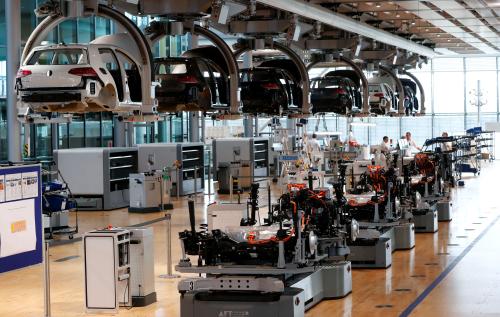
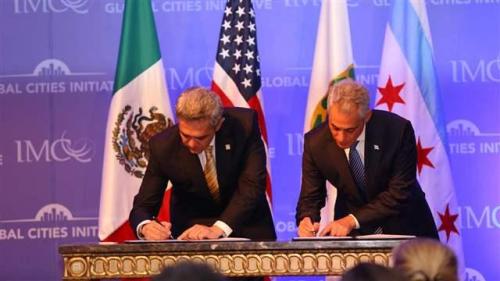
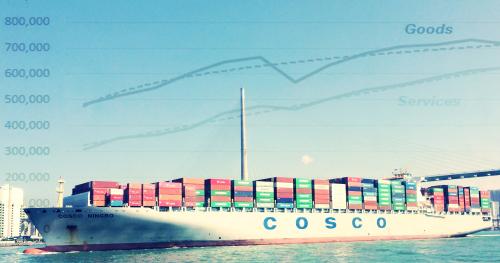


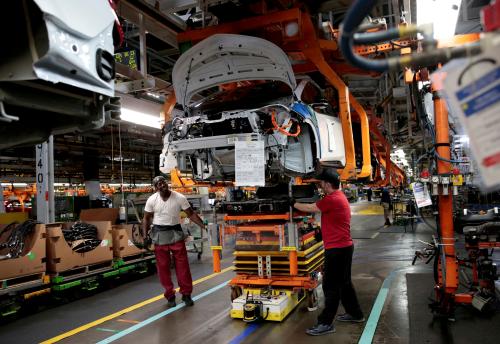
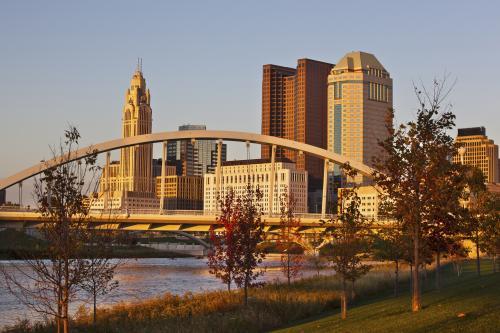

Commentary
Beneath NAFTA, U.S. and Mexican cities continue their own diplomacy
September 14, 2017